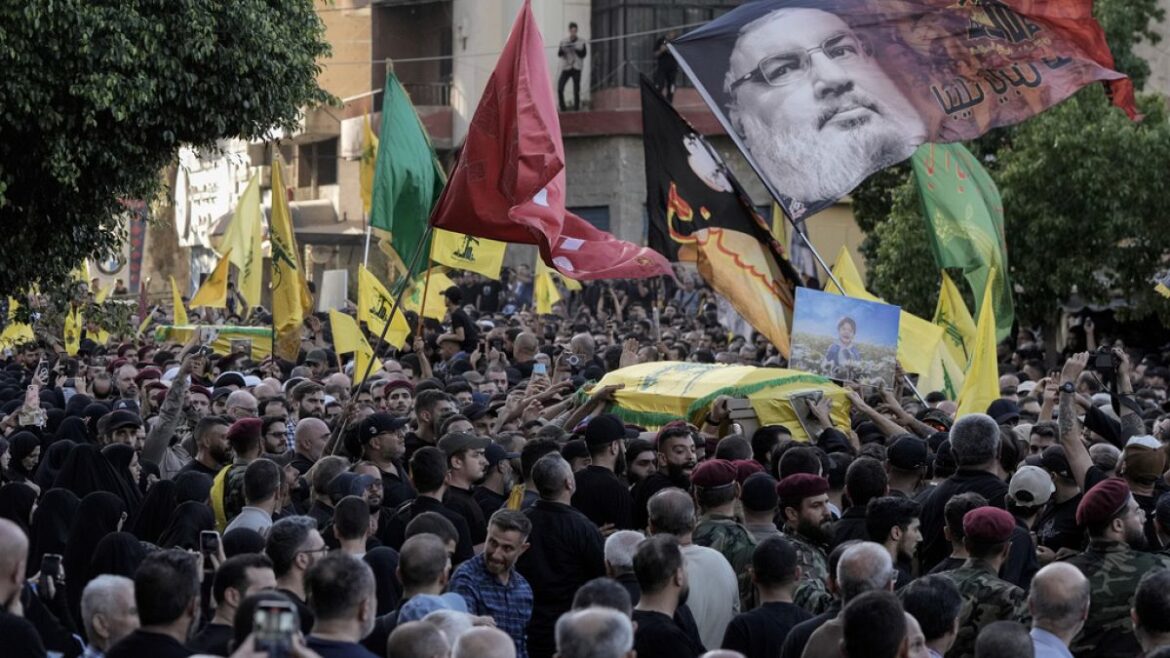Tensions between Israel and Lebanese Hezbollah continue to rise, with strikes increasing on both sides of the border.
Tensions between Israel and the Lebanese militant group Hezbollah have escalated this week, The two sides exchanged heavy fire following a wave of communications equipment explosions in Beirut last week.
Israeli officials maintain they are not seeking war with Hezbollah and are encouraging the group to stop its attacks and move away from the border.
Hezbollah has also said it does not want war but is prepared for one – and refuses to stop its attacks until a ceasefire is signed between Israel and Hamas in Gaza.
Independent foreign policy analyst Adnan Nasser told Euronews that Hezbollah was engaged in a “limited war” with Israel since the October 7 attacks, which sparked the war between Israel and Hamas.
Recent escalations, however, risk violating the “rules of engagement” which have so far characterized tensions between Israel and Hezbollah, says Adnan Nasser.
“The war has been fought on several fronts. It’s a question of scale and degree. Do we want all these other fronts, Lebanon, Yemen to look like Gaza after almost a year of bombardment by the Israeli army?”asks the expert.
Although Israeli strikes killed more than 350 people on Monday, Andreas Krieg, a military analyst at King’s College London, believes that the conflict is not qualified as “war” because “There have been no troops on the ground yet”.
Is a large-scale war to be feared?
Experts generally agree that Any future war between Israel and Hezbollah would be like the one they fought in 2006, but much worse.
For years, Israel’s view of a future war with Lebanon was known as the “Daniyeh doctrine,” with officials warning that the military would punish areas of Lebanon to crush Hezbollah strongholds.
The Lebanese militant group has spent years developing and improving its arsenal and is believed toIt has some 150,000 rockets and missiles capable of hitting all regions of Israel..
The military buildup and threats have created a situation of mutual deterrence that allowed the border to remain relatively calm from 2006 until October last yearFor most of 2023, the region braced for the worst, but both sides exercised restraint and threats of all-out war remained hypothetical.
Recent tensions, however, threaten to upset this situation.
“We have moved up a notch, but we have not yet reached the next level”says Uzi Rabi, director of the Moshe Dayan Center for Middle Eastern and African Studies at Tel Aviv University. “Ultimately, I don’t see any alternative to a land operation”.
Would an Israeli ground incursion turn the conflict into war?
Although Israel officially declared war on Gaza nearly three weeks before sending troops there, Israeli ground forces have been operating in the occupied West Bank for decades without anyone calling the incursion a “war”.
Along the same lines, Russia sent its forces to illegally annex Ukraine in 2014. However, it was not until Moscow declared a full-scale invasion of the country in early 2022 that the conflict was classified as a war by the international community.
Lebanon would likely consider a ground invasion a flagrant violation of its sovereignty and an act of war. However, Beirut has previously accused Israel of violating its airspace and occupying disputed territories along the border..
On paper, the two countries have been officially in a state of war since 1948.



